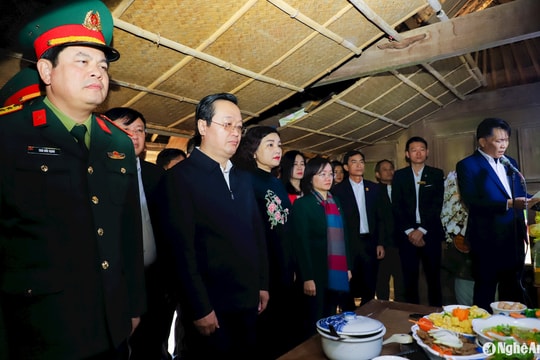The journey of following Uncle Ho to serve the Fatherland of Engineer Vo Quy Huan
In early winter, the bitter cold has begun to creep into the streets of Hanoi. I met Mrs. Vo Quy Yeu Hoa Binh, daughter of engineer Vo Quy Huan - one of the four patriotic intellectuals who followed Uncle Ho back to the Fatherland in 1946.
-86fb05bed09c808b347686c7557581df.jpeg)
The years of exciting journalism
The meeting took place in the attic of a small house on Quang Trung Street, Hoan Kiem District - where engineer Vo Quy Huan worked during his time in Hanoi. On the wall, framed black and white photos of the past hung neatly, like witnesses bringing us back to the memories of a patriotic intellectual who had been associated with the ups and downs of the nation.
In her story, Mrs. Vo Quy Yeu Hoa Binh could not hide her pride but also her thoughtfulness when talking about her loyal father. Her story is not only a family memory but also an indelible part of the history of the Vietnamese people.
Engineer Vo Quy Huan was born in Da Nang but grew up in his hometown Thanh Tung (Thanh Chuong) in a family of teachers. Thanh Tung land belonged to the old Bich Hao commune, the birthplace of many famous scholars such as Pho Bang Nguyen Lam Tuan, Doctor Nguyen Lam Thai, Doctor Pham Kinh Vi and many other revolutionaries and patriotic intellectuals. From a young age, Vo Quy Huan was given the opportunity to study, and at the age of 19, his family sent him to Hanoi to study for a bachelor's degree.
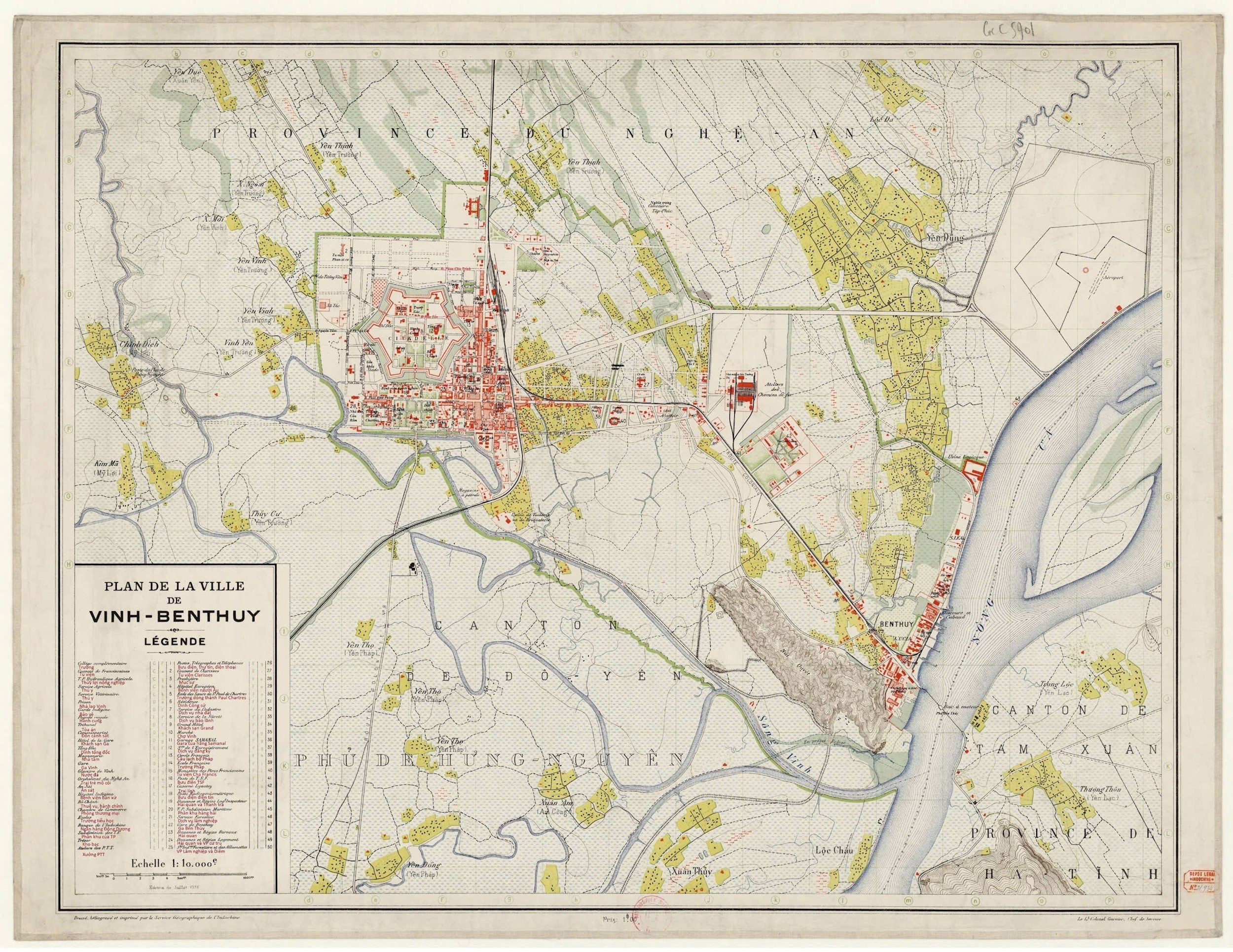
In 1935, after completing his baccalaureate, Vo Quy Huan returned to Vinh, participated in the struggle movements and worked as a journalist to encourage his compatriots to stand up and demand their rights against the French colonialists. During this period, the movement for freedom and democracy led by the Indochinese Democratic Front took place strongly throughout the country. Vo Quy Huan gathered a number of like-minded brothers and friends to publish a newspaper written in three languages: Vietnamese, French, and Chinese, called L'activité Indochinoise (Indochina Activities). The newspaper's headquarters were located at 41, Boulevard Destenay, Vinh town (now Phan Dinh Phung street). "Indochina Activities" was published every Wednesday, the first issue was published on January 6, 1937.
At this time, Vo Quy Huan was both the editor-in-chief of the newspaper, the editorial secretary, and a writer. He also called on like-minded friends, along with his brother's friends, to participate in writing articles for the newspaper. The "Dong Duong Hoat Hoat" newspaper regularly published articles with democratic and progressive ideas, defending workers and laborers. This was the reason why this newspaper was quickly put on the "black list" by the press censorship agency of the colonial government and the French secret police. Not long after, its operating license was revoked after having published 10 issues.
Afterwards, Vo Quy Huan was also summoned to appear in court at the Protectorate Court (North and Central Vietnam belonged to the Protectorate). However, Vo Quy Huan used the excuse that he was born in Tourane (Da Nang) - in the French Concession area, so only the First Court had the right to judge. This gave him time to delay and temporarily take refuge in France.
-f52fbb7ae0d0a98826943f1524377afd.jpg)
Journey following Uncle Ho back home
In mid-1937, after being forced to flee to France, Vo Quy Huan went to school, worked, and actively participated in political discussions and rallies of the popular movement organized by the French Communist Party. In July 1939, Vo Quy Huan was officially admitted to the French Communist Party.
Also in 1939, he completed his degree in Mechanical and Electrical Engineering and was recruited by the French shipping company Compagnie Transatlantique. Here, he got to know many Vietnamese sailors and workers. Later, he joined and was elected Secretary of the France - Vietnam Friendship Association, actively working to connect Vietnamese people in France and calling for support and advocacy for Vietnam's independence.
During the period from 1940 to 1946, Vo Quy Huan also studied for degrees in Foundry - Metallurgy and Professional Engineering, and at the same time studied for a doctorate at the Sorbonne (Paris) in Mechanics. When he was only 1 year away from defending his doctoral thesis, a turning point changed the entire life of him and his loved ones.
In mid-1946, when the delegation of the Government of the Democratic Republic of Vietnam led by comrade Pham Van Dong went to France to attend the Fontainebleau Conference; and when President Ho Chi Minh officially visited France (from June 22 to September 18, 1946), as a distinguished guest of the French Government... On this occasion, Mr. Vo Quy Huan, as Vice President of the France - Vietnam Friendship Association, represented overseas Vietnamese in welcoming, supporting and mobilizing support for the delegation. He was also the one who filmed and took historical films and photos of the Vietnamese delegation in France.
-5ad8e55a721774fffbdd333823c4a54f.jpg)
During the time of contacting and supporting the delegation of the Government of the Democratic Republic of Vietnam, especially contacting President Ho Chi Minh, Vo Quy Huan was more imbued with the ideology and understood more clearly the aspiration for independence and freedom that patriotic Vietnamese people aspired to. After the failure of the Fontainebleau Conference, President Ho Chi Minh returned home.
Before leaving France, President Ho Chi Minh secretly met with a number of prominent intellectuals. On September 18, 1946, on the warship Dumont d'Urville that took President Ho Chi Minh away from the Toulon military port, in addition to two attendants, there were also four overseas Vietnamese intellectuals who secretly followed him back to the country, including engineer Vo Quy Huan, doctor Tran Huu Tuoc, mining engineer Vo Dinh Quynh and mechanical engineer Pham Quang Le (aka Tran Dai Nghia).
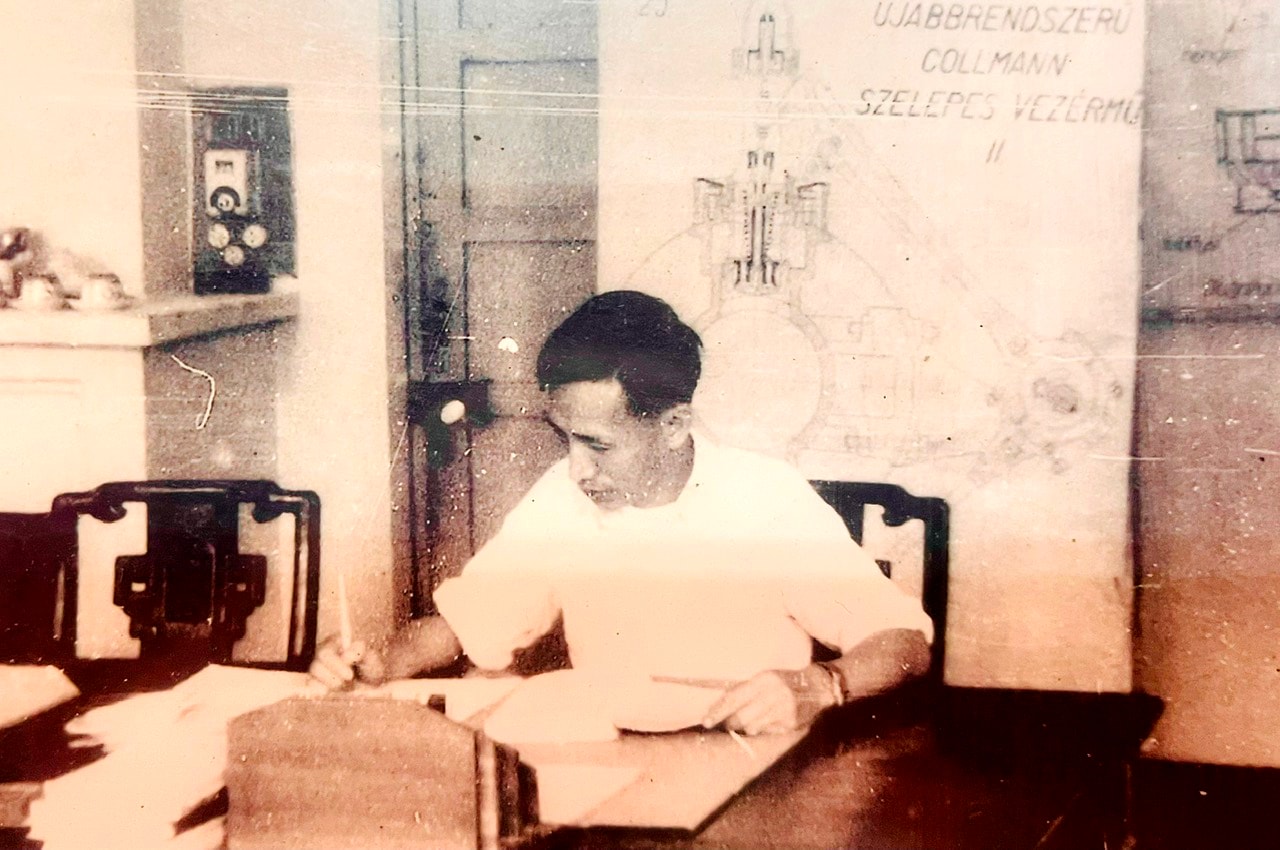
Leaving the West with a stable salary, patriotic intellectuals accepted to devote themselves to the arduous resistance of the nation. Returning home, they were assigned important tasks in building the foundation of the national defense industry, serving the resistance. In particular, engineer Vo Quy Huan was assigned the important responsibility of being the Director of the Central Mineral Industry Department, in charge of the Casting - Metallurgy industry. Under his direct guidance, on the afternoon of November 15, 1948, the first batch of pig iron from Van Tri iron ore (Nghi Loc, Nghe An) was successfully smelted and from there, grenades, mines and many types of weapons were mass-produced, serving the resistance.
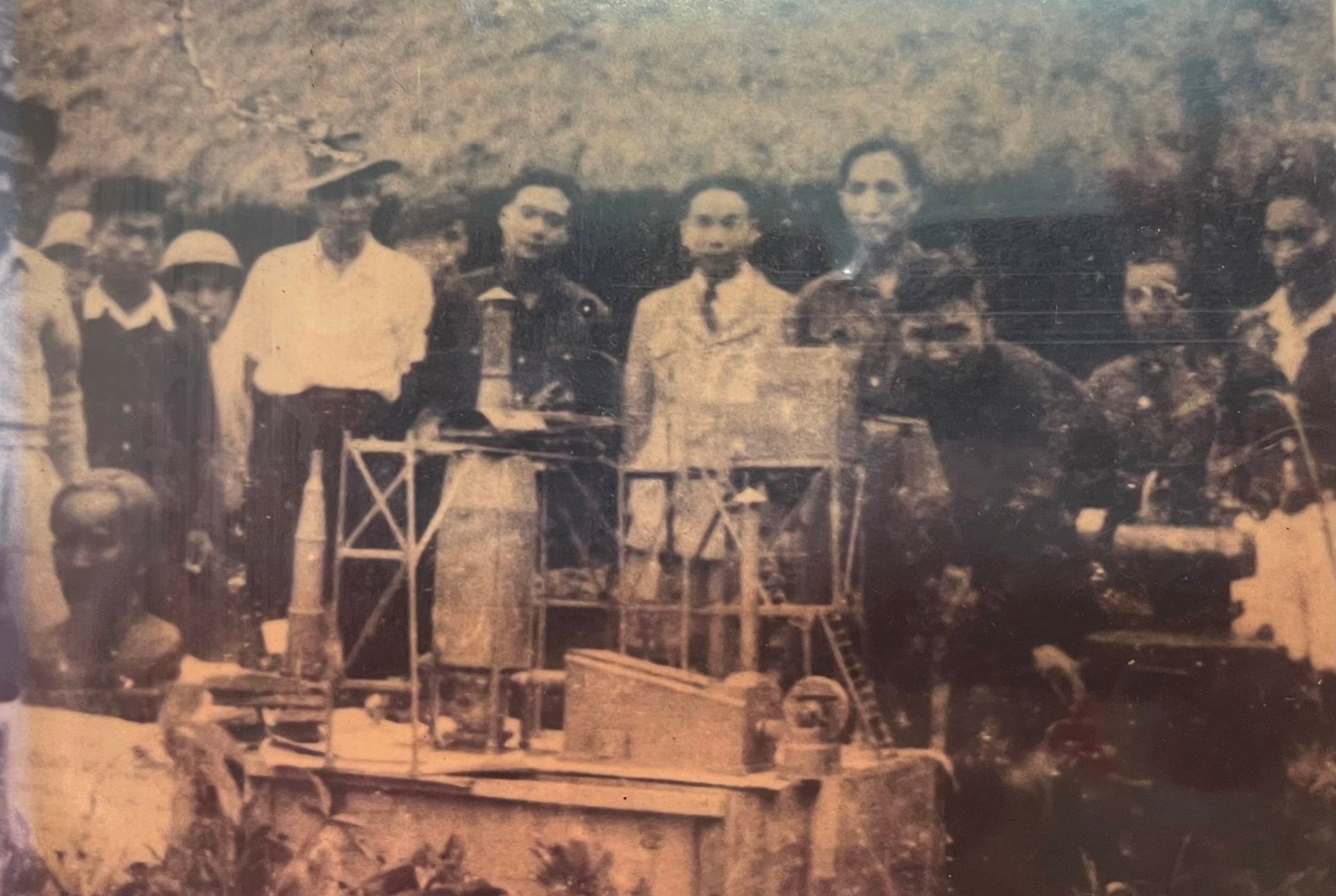
The important milestones in the years of dedication to the country were preserved by the patriotic engineer Vo Quy Huan in a very special way. In 1948, to celebrate the birth of the first batch of cast iron, he named his first son (of the second wife he married when he returned to Vietnam) Vo Quy Gang Anh Hao; in 1951, to celebrate the first batch of successfully smelted steel, he named his next son Vo Quy Thep Hang Hai; in 1953, he named his newborn daughter Vo Quy Yeu Hoa Binh; and in 1955, with the desire for the country to prosper, even though it was still divided into two regions, he named his youngest son Vo Quy Quoc Hung.
The father's regret and the journey of two sisters to find each other again
Among the four intellectuals who returned to the country with Uncle Ho, Mr. Vo Quy Huan was the only one who had a family. In 1940, he married his Russian girlfriend named Irène - a language expert who could speak 7 languages fluently. In 1944, the couple welcomed their first daughter named Vo Quy Viet Nga.
"The day my father left to follow Uncle Ho back to the country, he only had 48 hours to prepare. At that time, Mrs. Irène was busy defending her doctoral thesis in Paris, so my father only had time to send Viet Nga to a friend to take care of. Before leaving, my father hugged her and told her that he would only be gone for a few or three months and then return. Unexpectedly, that farewell lasted 11 years, and he could not fulfill it until he passed away in 1967" - Mrs. Hoa Binh choked up and said.
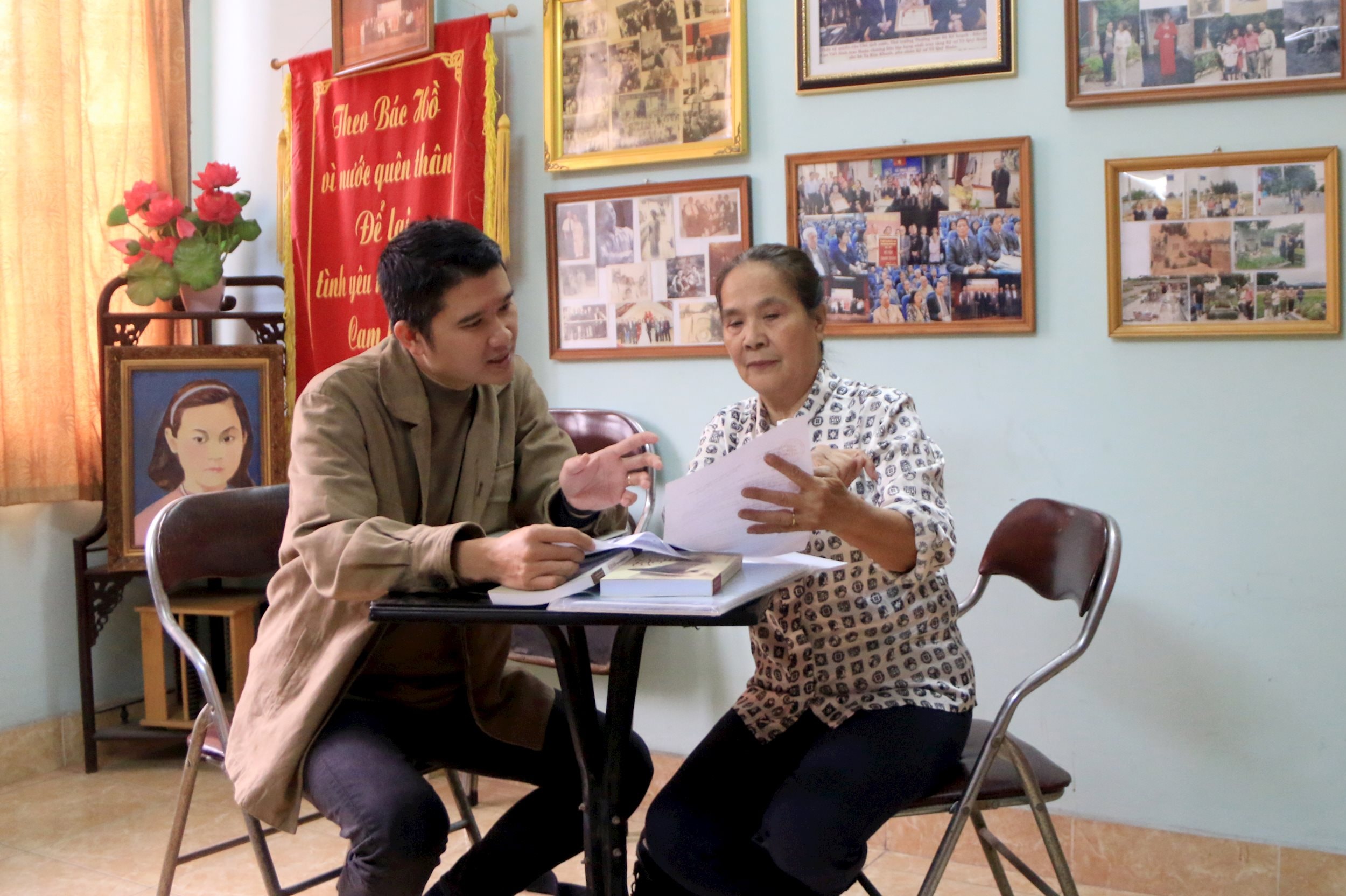
Mrs. Hoa Binh's eyes were filled with deep sadness when she mentioned her father, who put aside his personal feelings to devote his whole life to the country, and the words he told his little daughter that he never had the chance to keep. "In the West, a promise to a child is the most sacred promise that everyone must keep. The promise that "I will go away for a few months and then return" to my daughter who was not yet 3 years old has become an unfillable void in my father's heart and my family's" - she said, her voice sad.
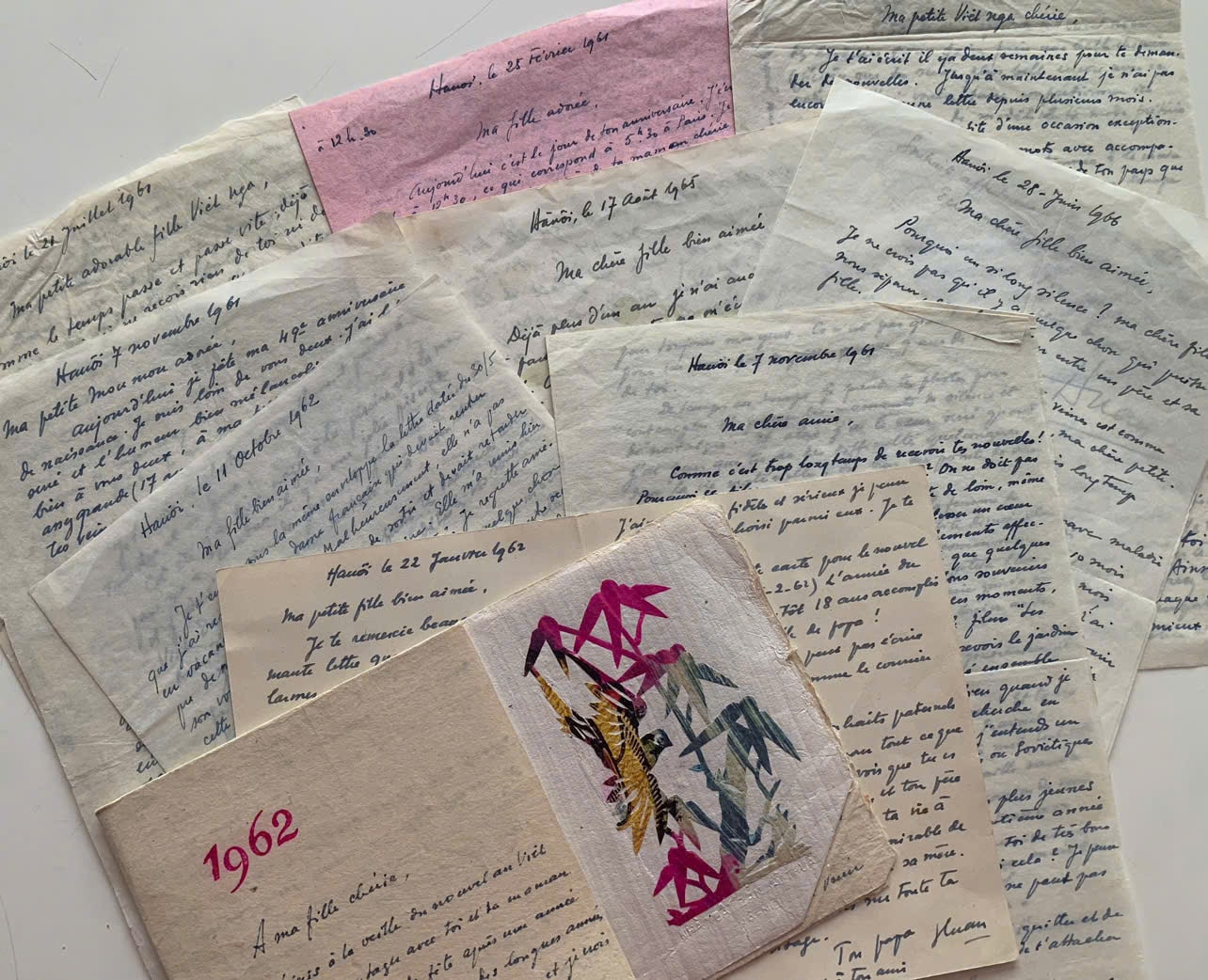
Mrs. Hoa Binh still remembers clearly the days when her father was seriously ill and had to be treated at the Viet-Xo Hospital. She recounted: That year I was only 13 years old, during the time in the hospital, my father often quietly took out some photos, looked at them carefully and sighed. Among them, there was a photo of my brother studying abroad in the German Democratic Republic and a photo of a blond-haired child. One time, unable to contain my curiosity, I asked my father, he gently said -“This is my grandson!
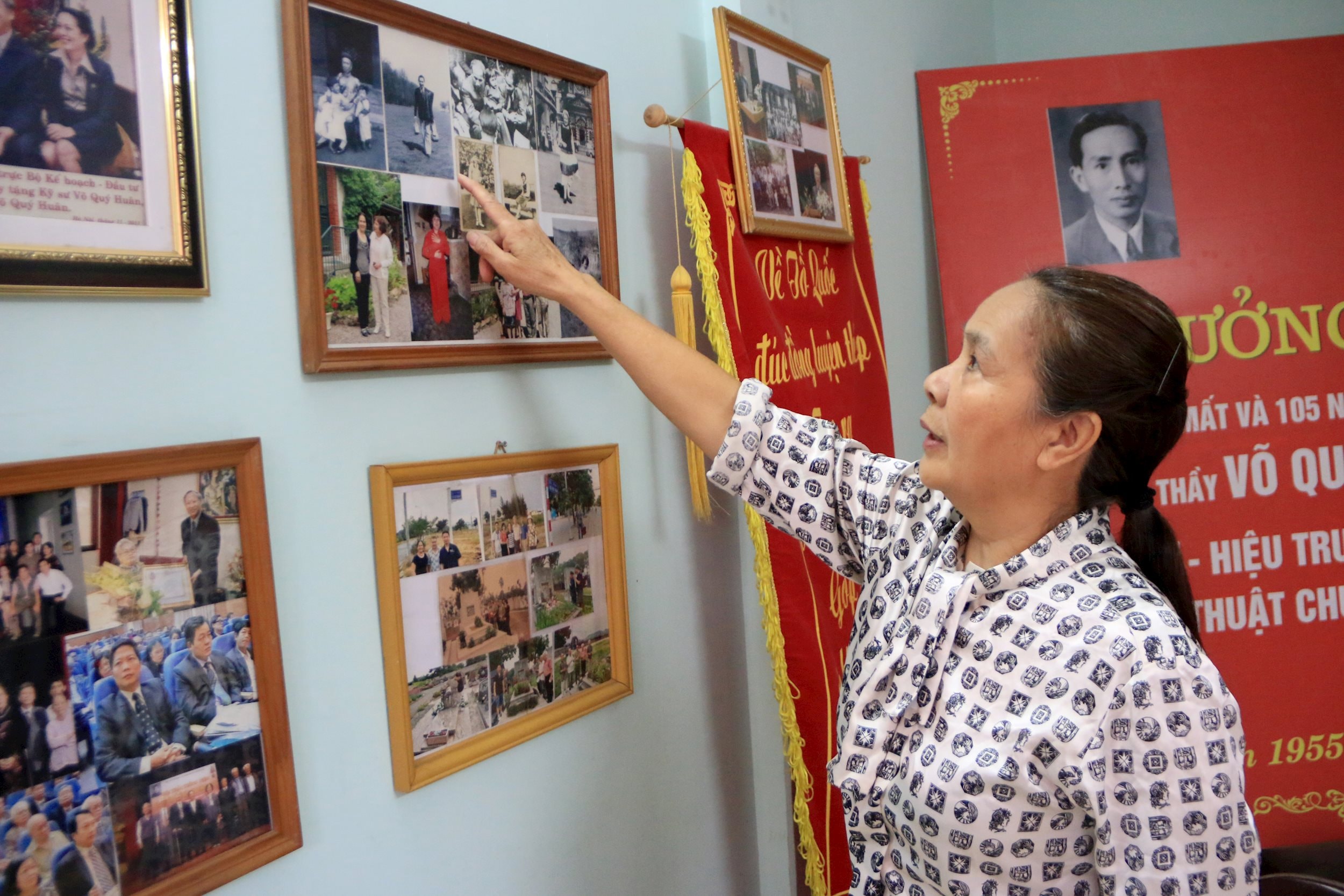
Seeing my surprise, and seemingly sensing that he would not be able to overcome his illness, my father decided to tell me the tearful story of his separation in France. He said: “You have another sister who is currently in France. When I followed Uncle Ho back to the country to fight the resistance, I promised Mrs. Irène and sister Viet Nga that I would return in just a few months. But… I could not do it. I am very sorry.”
Before he passed away, my father told us to definitely find Mrs. Irène and Ms. Viet Nga, just to tell her that he had been wronged all his life. He had not been able to help her in any way, from childhood to adulthood. Even when she got married, if she had a dowry, her position would have been more respected. But my father had nothing. He only hoped that we would try to find her. Only then would he rest in peace.
Mrs. Vo Quy Yeu Hoa Binh - daughter of Engineer Vo Quy Huan
Fulfilling her father's wish, Mrs. Hoa Binh later decided to learn French herself so that she could find her sister. Her children were also oriented to study abroad in France in the hope of helping their mother find her lost sister.
She said that after finding Mrs. Irène's address from her father's old documents, she asked someone to write a letter for her, along with photos to send as proof. In the letter, she also announced that her father had passed away and expressed her feelings for Mrs. Irène and Ms. Viet Nga.
However, there were not many letters, partly because Mrs. Irène was old and weak and then passed away, and Ms. Viet Nga maintained a distant attitude. "Once, Ms. Viet Nga wrote in a letter that, to her, the two words Vietnam evoked the pain of losing her father and it was not easy for her to overcome the pain of the past to be able to see her siblings again..." - Ms. Hoa Binh recounted.
-50ef60f16b222f30bdca877994c66a34.jpg)
In the early 2000s, Mrs. Hoa Binh had the opportunity to meet her sister Viet Nga in person when her children went to France to study. Although she had written many letters and Mrs. Hoa Binh had gone to France three times, a face-to-face meeting was repeatedly refused. They understood that Mrs. Vo Quy Viet Nga could not easily forget the pain of missing her father in the past.
In October 2007, on her fourth trip to France, Mrs. Hoa Binh was determined to find her sister. Because she knew this might be the last time, because her children were about to graduate and return home. When she learned that Mrs. Viet Nga had retired and was living in a village about 500km from Paris, Mrs. Hoa Binh and her children decided to hire a taxi to go there without giving any notice, thinking that if they still refused to meet her this time, they would go home.
That day, the unexpected encounter left Mrs. Vo Quy Viet Nga stunned. Unable to deny the love of their blood, the two sisters hugged each other in tears.
-23a7e33a728a613cd2076d1b8ccb7906.jpg)
"After the initial emotions, she asked me, 'Father worked very hard, didn't he?'" - Mrs. Hoa Binh recalled: "Then I told her the last words of Father before he left, that he missed Mrs. Irène very much and loved her. Father was very regretful until he died for not returning to her and her mother and told her to find her to mend the relationship, which he had not been able to fulfill while he was alive"...
Afterwards, Mrs. Hoa Binh was led by her older sister Vo Quy Viet Nga to see a room filled with books, photos, letters, which were souvenirs that her father left in France as well as sent from Vietnam.
Now, the relationship has been restored, but there is one thing that Mrs. Vo Quy Hoa Binh still yearns for in her heart. That is to welcome her sister's family to visit Vietnam, to light an incense stick at their father's grave; to walk together on the street named after Vo Quy Huan in the capital Hanoi. And also, to visit her paternal hometown Thanh Chuong to understand and love more the homeland, the birthplace of her beloved father - a man who was loyal and devoted to his country...

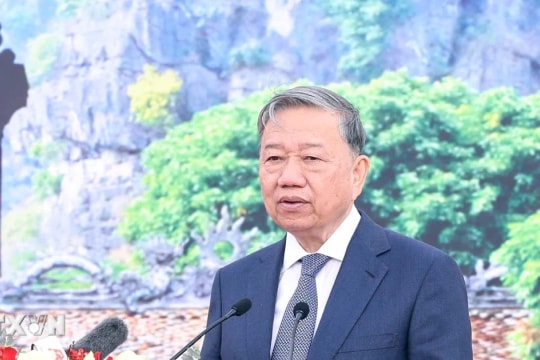
.png)
